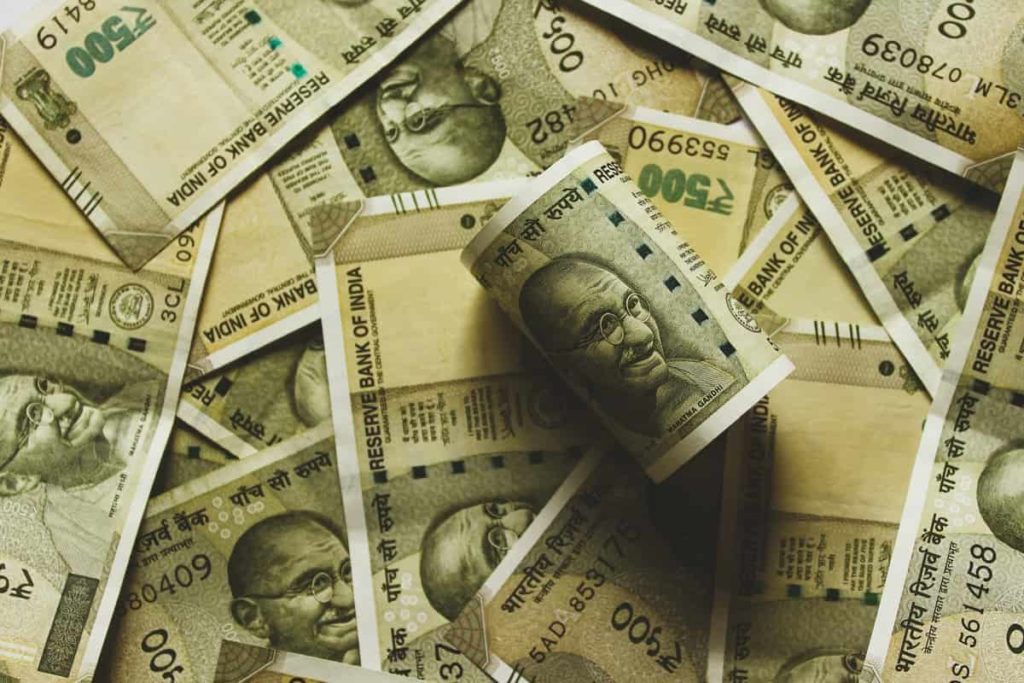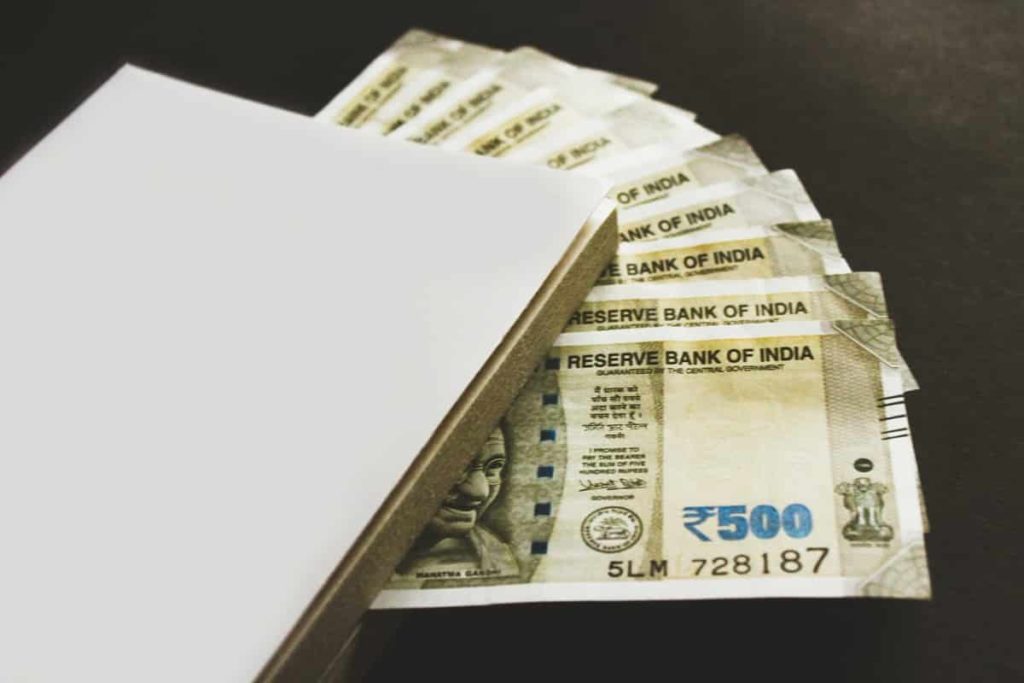Government subsidies are essential for the financial benefits of small businesses. The small-scale industry is dependent on various government subsidy schemes and grants. There are about 40 million micro, small and medium enterprises (MSMEs) in India, including registered and unregistered. MSMEs fall into the category of both organized and unorganized. These MSMEs contribute about 40% to the total GDP of India and remain an important source of employment. Let’s check out central government subsidy schemes for small scale businesses.

MSMEs provide solutions to important issues of the country such as poverty, unemployment, income inequality, regional imbalances, etc. To this end, the government has introduced various schemes for approving loans to MSMEs to boost their business and their economy. Businesses running such MSMEs can avail loans in the form of loans through any scheme as per their requirements.
The small-scale business sector, popularly known as the Small and Medium Enterprise Sector (SME), accounts for about 40% of India’s gross domestic product (GDP). The sector is a major source of employment in India but faces stiff competition from privately funded businesses. Realizing this, the Government of India has introduced some loan schemes to finance small businesses. These loans are available to SMEs to fund their day-to-day operations, grow their business, buy new equipment, and more.
Top 10 central government subsidy schemes for small scale businesses, start-ups and new msmes
MUDRA loan under PMMY
The government has set up a scheme to finance non-corporate, non-farm small/micro-enterprises. Mudra loans can be obtained from private and public sector banks, commercial banks, regional rural banks (RRBs), microfinance banks, and corporate banks. MUDRA loans are widely used by small businesses and start-ups.
Features
- Collateral free loans
- Competitive interest rates from banks
- Loan amounts up to Rs. 1 million
- No processing fee
- Zero prepayment charges
- Payment term from 12 months to 5 years
- Discounted interest rates for women entrepreneurs
In case you miss this: Electric Vehicle Subsidy in India

Eligibility
- Applicants must be at least 18 years old and at most 65 years old.
- Individuals, MSMEs, the enterprise firm in rural and urban areas, can also apply for the loan.
Examples of NCSBs
- Small manufacturing units
- Service sector units
- Shopkeeper
- Fruit / vegetable seller
- Truck operators
- Foodservice units
- Repair shops
- Machine operators
- Small industries
- Craftsman
- Food processors and many other companies
Individuals, business owners, and businesses engaged in manufacturing, trading, and services are eligible for MUDRA loans. Schemes for women entrepreneurs can also be availed under the Government Loan Mudra Yojana.
Stand-Up India Scheme
Stand-Up India Scheme introduced by the government to provide loans to businesses run by Scheduled Castes / Scheduled Tribes and women. Loans under this scheme can range from Rs. 10 lakh to Rs. 1 crore. Each bank should provide this loan to at least one listed caste / listed tribe or female entrepreneur. According to the loan, the fund is expected to cover about 75% of the total project cost
Eligibility
Businesses engaged in trade, manufacturing or other service-related sectors are eligible for loans under this scheme. If the business is not an individual, then at least 51% of the shares should be held by an individual who is a woman or belongs to a listed caste / listed tribe.
In case you miss this: Government Loans for Women Entrepreneurs in India

National Horticulture Board (NHB) – Government subsidy
The NHB provides investment subsidies for the construction/expansion/modernization of cold storage for horticultural products (a subsidiary scheme under MIDH). The scheme is for setting up and modernization of cold storage (more than 5000 MT and up to 10000 MT). It is an open and credit-linked scheme. To take advantage of this scheme, you will need to submit an online application for IPA.
NHB Schemes
- Commercial Horticulture Scheme
- Cold storage scheme
- Tech. Dev Transfer Scheme
- Market Information Service Scheme
- Horticulture promotion service
Government Subsidy for Small Business – Organic Farming
The Government of India is providing subsidized investment for commercial production units in the manufacture of bio-fertilizers / organic fertilizers under the National Project on Agriculture which is Organic.
NABARD / NCDC is going to release the eligible amount of subsidy first available through DAC as per the requirement. You will receive a 50% Advance Subsidy which is participating so that you can keep it in the subsidy reserve fund account available to the respective borrower.
Features
- Realizing the organic farming potential in the North Eastern region of the country.
- The Department promotes organic farming in the North Eastern States.
- The North Eastern States of India will develop as the Organic Centre of India.
- Farmers Producer Companies (FPC) and Farmers Interest Group (FIG) will be involved in the collection, collection, post-harvest process, and market facilities.
- 50,000 farmers will benefit through value chain production, processing, marketing, and value chain support agencies.
- Enable NE region to develop its brand of organic products.
Credit Guarantee Fund Trust for Micro and Small Enterprises (CGTMSE)
The Credit Guarantee Fund Trust for Micro and Small Enterprises (CGTMSE) was established by the Government of India and was implemented from January 1, 2000, to enable micro-level businesses, small-scale industries, and so on. Provide business loans to start-ups. Zero Guarantee This allows businesses to obtain loans at extremely discounted interest rates without the need for any security.
In case you miss this: Sample Project Report for Bank Loan, Model Report

Working closely with SIDBI (Small Industries Development Bank of India), the government provides a maximum of R 100 million under this scheme to promote new businesses as well as rehabilitate existing ones. Also Primarily for manufacturing units, this loan can be obtained in the form of working capital or term loan.
Salient features of the CGTMSE Scheme
- Compiled by Government of India and SIDBI.
- Any collateral / third party guarantee free credit facility (both funded as well as non-funded) by eligible entities to new and existing micro and small enterprises including service enterprises, with a maximum credit cap of Rs. Eligible to cover Rs.
- Recently, guarantee coverage has been enabled to select NBFCs.
- Under the scheme term, loan/working capital or both can be considered.
- Micro and Small Enterprises (MSEs) engaged in manufacturing and services are eligible under the CGTMSE scheme. CGTMSE cover is not available for loans provided to businesses engaged in retail, educational institutions, training centers, self-help groups, and joint responsibility groups.
- The guarantee covers up to 75% upfront are available.
- The maximum amount of guarantee cover available is Rs. 62.50 lakhs.
- Loans provided under the Mudra Scheme can also be included under the Credit Guarantee Fund for Micro Units.
Technology Upgradation Fund Scheme (TUFS) for Textile Industry
The Ministry of Textiles introduced the Technology Upgradation Fund Scheme (TUFS) for the textile and jute industry in April 1999 to facilitate the incorporation of state-of-the-art technology through textile units.
This includes a 5% interest refund of the general interest charged by the lending agency on RTL, or 5% exchange rate fluctuations (interest and payments) at the base rate on FCL, or 15% credit for the SSI sector. Associated capital subsidy, or 20% credit-linked capital subsidy for the power loom sector, or 10% capital subsidy for certain processing machinery in addition to 5% interest refund. Various schemes were recently launched by the government to encourage the textile industry are:
- Technology Upgradation Fund Scheme
- Restructured Technology Upgradation Fund Scheme
- Scheme for Integrated Textile Park
- Group Work Shed Scheme for Power Loom Sector
- Integrated Scheme for Power Loom Sector Development
- Schemes for Technical Textiles
- Catalytic Development Program
- Integrated Handloom Development Scheme
- Marketing and Export Promotion Scheme
- Miscellaneous Handloom Development Scheme
- Mill Gate Price Scheme
In case you miss this: MUDRA Loan Project Report – How To Prepare

Subsidy offered by National Small Industries Corporation (NSIC)
The ISO-certified Government of India Enterprise, NSIC facilitates the development of MSMEs by providing services in the areas of finance, technology, and marketing. It has launched two schemes to promote the development of MSMEs. Read more about these schemes below:
- Credit Support Scheme: Under this scheme, financial assistance is provided to MSMEs for acquiring raw materials.
- Marketing Support Scheme: This scheme supports the consortium and tender marketing activities of MSMEs.
MSME Loan in 59 Minutes – Launched by SIDBI
Launched by SIDBI or Small Industries Development Bank of India, the 59-minute MSME loan is one of the unique government loan schemes for MSMEs and new businesses, approving a 59-minute flat loan. The disbursement process takes 8-9 days, once the loan is approved. Under the scheme, small businesses and MSMEs can avail loans up to Rs 100 million, under refinancing schemes, in which 5 Nationalized (PSU) banks are authorized to provide loans. The interest rate on this special loan for MSMEs depends on the nature of the business, the owner’s current credit rating, and the loan approval period. The documents required to obtain this loan within 59 minutes are:
- GST documents
- Income tax documents
- Bank account statements
- Company ownership documents
- Owner’s KYC details
- Credit rating / CIBIL documents
- Other related documents
Market Development Assistance Scheme for Micro, Small, and Medium Enterprises
It is useful to provide funds for the participation of small and micro enterprises in international trade fairs/exhibitions under MSME India Stall through manufacturing. Sector-specific market studies through Industry Associations / Export Promotion Councils / Federation of Indian Export Organizations; Initiation/competition of anti-dumping cases through MSME associations and refund of 75% of the one-time registration fee; And 75% (recurring) of the annual fee paid to GSI (formerly EAN India) through small and micro units for the first three years for barcodes. The scheme provides financial support for:
- Participate in international trade fairs/exhibitions under MSME India Stall by developing small and micro-enterprises.
- Region-specific market research by Industry Alliance / Export Promotion Councils / Federation of Indian Export Organization.
- Competing for anti-dumping cases through MSME Council.
- 75% of the one-time registration fee paid to GSI through small and micro units for the first three years for barcodes (since January, 1st 2002) and 75% of the annual fee (recurring) ( June, first from 2007).
In case you miss this: Mudra Yojana Loan Scheme, Eligibility, How to Apply

Government Subsidy for Small Business – Dairy Farming
To further strengthen the agribusiness in the Republic of India, NABARD Agricultural Subsidy was introduced. In addition to the benefits, animal manure provides an honest supply of organic matter for soil fertility and crop production. Dung gas from manure is used as fuel for household purposes and also to run engines to draw water from wells. Extra fodder and agricultural by-products are products that are used beneficially for animal feed.
Government Review Initiative on MSMEs
Under the chairmanship of Prime Minister Narendra Modi, the Ministry of Micro, Small, and Medium Enterprises (MSMEs) implements various programs / MSME schemes for the development and promotion of MSMEs across the country.
Furthermore, the Government of India has been very active in ensuring that all the benefits of these MSME schemes reach the MSMEs on time. Various announcements (apart from various MSME schemes) have been made under the Atmanir Bihar Bharat Package to provide immediate relief to the MSME sector.
The most important include:
- INR 3 lakh crore collateral-free auto loans for MSMEs to purchase raw materials, meet operational obligations and resume business.
- Revise the definition of MSME to maximize benefits to the sector.
- Do not allow global tenders for purchases up to INR 200 crore to create attractive opportunities for domestic players.
- Payment of MSME dues by Government and Public Sector Units (PSUs) within 45 days.
- Handicraft Making at Home: A Small Profitable Business Idea
- Pet-Tech Startups: Innovations for Animal Lovers
- Tech Repair Services: Meeting the Demand for Gadget Maintenance
- Maximizing Rewards: Smart Credit Card Habits for Cashback and Points
- Ultimate Guide to Making Money from Goat Milk Business
- How to Start an Agricultural Value Added Product Business
- Value-Added Business Ideas for Greenhouse: The Best Ways to Make Profits with Greenhouse Farming
- How to Make Profits with Organic Country Chicken: Best Strategies for Beginners
- 10 Value-added Business Ideas for Millets: Low-investment and Highly Profitable
- Why Cleaning Service Business Becoming More Profitable in Metro Cities in India
- 10 Best Businesses to Start in Ayodhya for Profits
- Top Drone Business Ideas in India: Unlocking Aerial Innovation & Opportunities
- Top 10 Service Businesses You Can Start with No Money
- Ultimate Guide to Starting a Home-Based Advertising Agency Business
- Starting a Nail Salon Near Your Location: Check List, Business Plan, Licensing, and Opening Instructions
- Construction Company Name Ideas: Guide to Create New Construction Company Names
- 8 Best Small Businesses to Start in Hyderabad: Low-Cost and Profitable
- 10 Best Small Businesses to Start in Massachusetts: Low-Cost and Profitable
- 10 Best Small Businesses to Start in Maryland: Low-Investment and Profitable
- 10 Best Small Businesses to Start in Delaware: Low-Investment and Profitable
- 10 Best Small Businesses to Start in Connecticut: Low-Investment and Profitable
- Top 10 Best Online Pet Business Ideas: Exploring Cats to Dogs
- 10 Best Small Businesses to Start in Colorado: Low-Investment and Profitable
- Top 10 Profitable Small Business Ideas in California: Low-Investment Tips
- From Little Rock to Fayetteville: Top 10 Profitable Small Business Ideas in Arkansas
- Top 10 Profitable Small Business Ideas in Alabama: Discover Opportunities in Alabama’s Growing Cities
- Top 10 Profitable Small Business Ideas in Arizona: Discover Opportunities in Arizona’s Growing Cities
- Golf Business Ideas: Exploring Golf Course Money Making Ideas
- Low Capital Profitable Small Farm Ideas: Farming Ideas to Make Money
- How to Write a Business Plan for Daycare: Exploring from Financial Projections to Risk Management
- Home Daycare License Requirements: Exploring State-wise In-home Daycare Requirements
- How Profitable is Day Care Business: How Much Does a Daycare Owner Make a Month or Year?
- How to Open a Daycare Center in Toronto, Canada: Business Plan, Licenses and Permits
- How to Start Meal Prep and Delivery Services: A Popular Business Idea
- How to Start a Milk Chilling Plant Business
- How to Start Coconut Shell Charcoal Business: Business Plan for Maximizing Profits